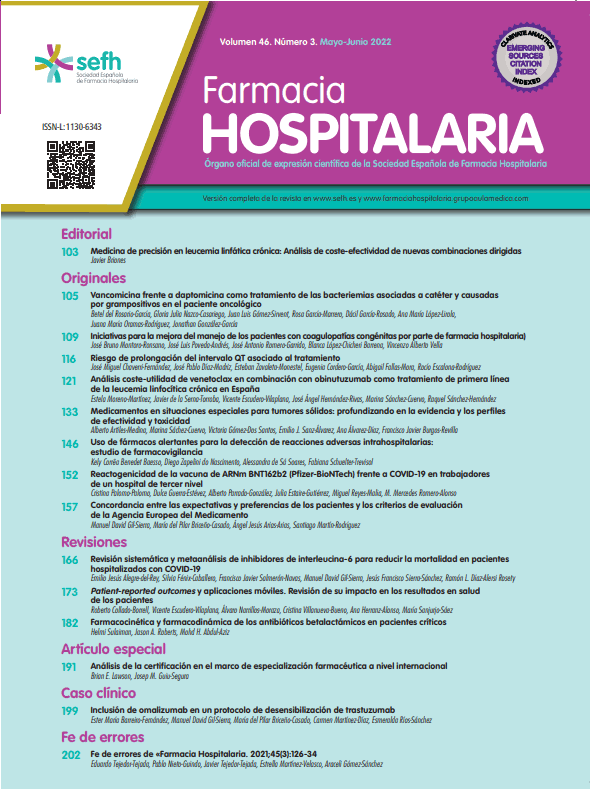Información de la revista
Vol. 30. Núm. 6.
Páginas 328-342 (Noviembre 2006)
Vol. 30. Núm. 6.
Páginas 328-342 (Noviembre 2006)
Acceso a texto completo
Randomized clinical trial of a postdischarge pharmaceutical care program vs. regular follow-up in patients with heart failure
Visitas
2444
Este artículo ha recibido
Información del artículo
Objective: To assess the efficacy of a multifactorial educational intervention carried out by a pharmacist in patients with heart failure (HF). Method: A randomized, prospective, open clinical trial in patients admitted for HF. The patients assigned to the intervention group received information about the disease, drug therapy, diet education, and active telephone follow-up. Visits were completed at 2, 6, and 12 months. Hospital re-admissions, days of hospital stay, treatment compliance, satisfaction with the care received, and quality of life (EuroQol) were evaluated; a financial study was conducted in order to assess the possible impact of the program. The intervention was performed by the pharmacy department in coordination with the cardiology unit. Results: 134 patients were included, with a mean age of 75 years and a low educational level. The patients of the intervention group had a higher level of treatment compliance than the patients in the control group. At 12 months of follow-up, 32.9% fewer patients in the intervention group were admitted again vs. the control group. The mean days of hospital stay per patient in the control group were 9.6 (SD = 18.5) vs. 5.9 (SD = 14.1) in the intervention group. No differences were recorded in quality of life, but the intervention group had a higher score in the satisfaction scale at two months [9.0 (SD = 1.3) versus 8.2 (SD = 1.8) p = 0.026]. Upon adjusting a Cox survival model with the ejection fraction, the patients in the intervention group had a lower risk of re-admission (Hazard ratio 0.56; 95% CI: 0.32-0.97). The financial analysis evidenced savings in hospital costs of ¿ 578 per patient that were favorable to the intervention group. Conclusions: Postdischarge pharmaceutical care allows for reducing the number of new admissions in patients with heart failure, the total days of hospital stay, and improves treatment compliance without increasing the costs of care.
El Texto completo está disponible en PDF






